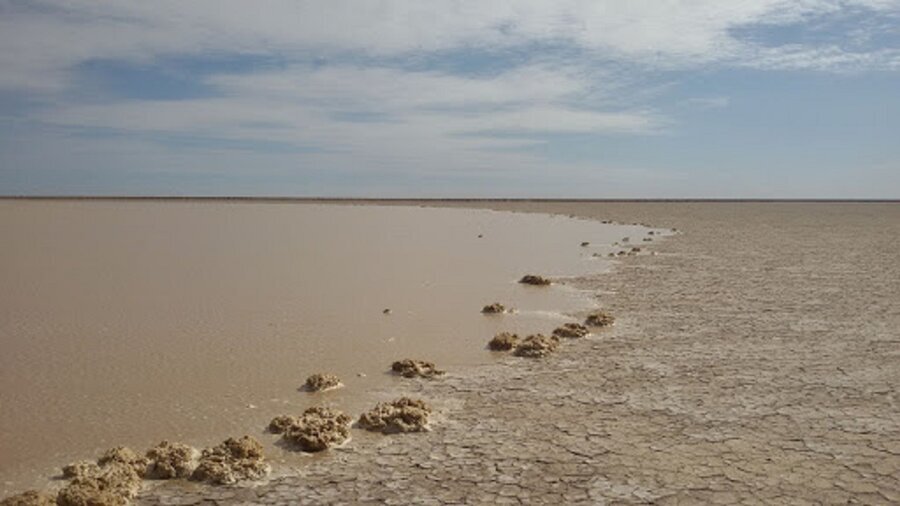Dam building in Afghanistan threatens Hamoun Wetlands in Iran

TEHRAN – Construction of Kamal Khan Dam in Afghanistan has caused Hamoun Wetlands to dry up and generate sand and dust hotspots, Masoud Tajrishi, deputy head of the Department of Environment (DOE) for the human environment, has said.
The dried-up wetlands became a source of sand and dust storm, and the DOE has called on the government, the Ministry of Foreign Affairs, and the Ministry of Energy to pay serious attention to the environmental issues of wetlands in the talks with the neighboring country, as it affects Afghanistan, Pakistan, Iran, and the Persian Gulf littoral countries, so the dust problem is entirely a regional issue, he explained.
To find a solution to SDSs and climate change, we called on the Afghan authorities to form a special task force and address the issue, he further stated.
Hamoun Wetlands have always been filled with fresh water for the past two centuries, so if sediments are not flooded and do not fill up the wetlands, the area’s ecosystem will certainly be affected, and it is expected that the wetland’s salinity increases.
Referring to the Hamoun drought following the construction of the Kamal Khan Dam in Afghanistan, he added that the locals are affected by the saline water and the animal species will perish, and the region’s ecosystem will be destroyed gradually.
The Hamouns are transboundary wetlands on the Iran-Afghan border made up of three lakes: Hamoun-e Helmand, which is entirely in Iran, Hamoun-e Sabari on the border, and Hamoun-e Puzak, almost entirely inside Afghanistan. The three lakes are linked and fed by water from the Helmand River which starts in the Hindu Kush Mountains in Afghanistan.
In the last two decades, once fertile wetlands have drastically dried up. The Taliban government closed the sluices to the Kajaki Dam on the Helmand until 2002, which aggravated the impact of the worst drought the region has experienced in many decades, brought about partially by climate change and warming temperatures.
According to the Atlantic Council (an American think tank in the field of international affairs) disputes over transboundary water between Iran and Afghanistan date back to the 1870s when Afghanistan was under British control.
FB/MG
